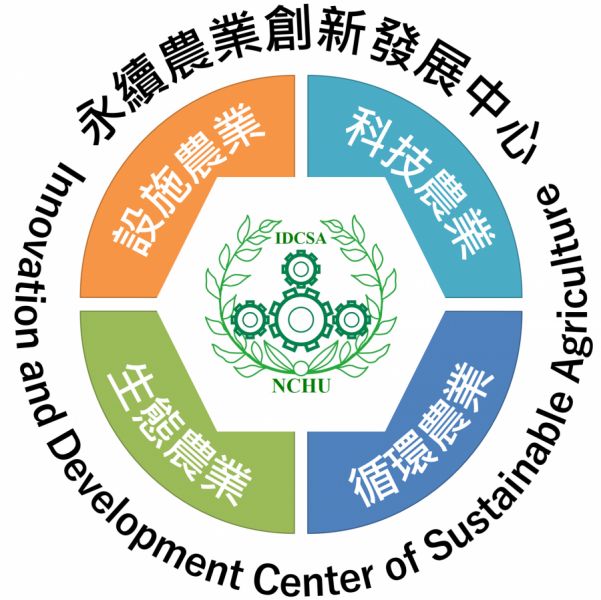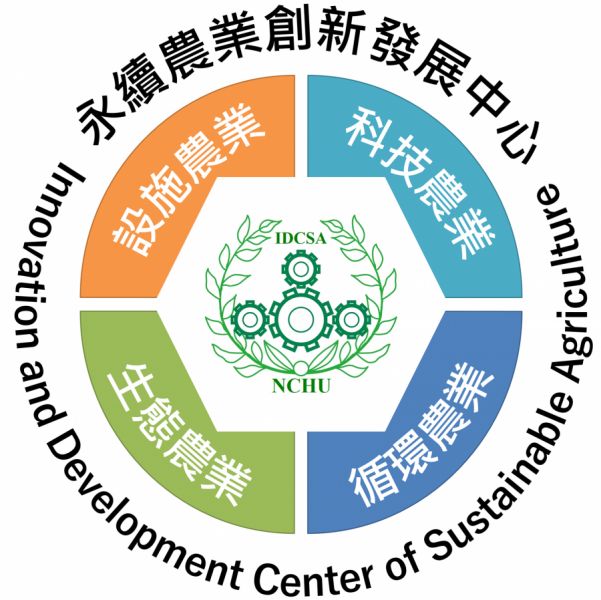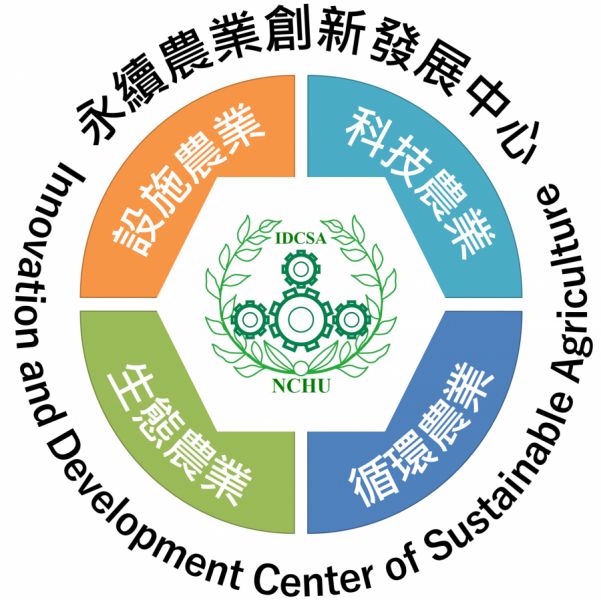2021 Focus:
1.Development and improvement of precision farming for paddy rice and tea
(1)Aerial images acquired by a quadcopter unmanned aerial vehicle (UAV) equipped with a multispectral sensor were used to estimate plant nitrogen content at vegetative phase of rice crops. The developed technique can be applied for precision fertilization of paddy rice to reduce the over application of nitrogen fertilizers and decrease the damages to ecosystems.
(2)A service that combine expert knowledge, remote sensing images and rainfall records and forecast from Central Meteorological Bureau have been developed to provide site-specific tea farmers the information whether irrigation is needed through automatic SMS every 5 days. This service not only helps tea farmers save irrigation costs, but also saves valuable water resource.
2.Development and improvement of non-pesticide chemicals and preservation techniques for agricultural products
Technologies and procedures for fruit export have been established for long-range low-temperature air-conditioning, passive-gas-change packaging and active-gas-change packaging storage and transportation, long-distance cold chain storage and transportation of guava exported to the United States for low-temperature quarantine, and long-distance storage of pomelo for low-temperature quarantine export to Japan. Transport technology and processes, and leaflets for healthy and nutritious ingredients are produced which will help increase the sales of Taiwan’s export high-quality fruits, increase the added value of the industry, open up emerging international markets, and expand the popularity of Taiwan’s fruits.
3.Health risk assessment for heavy metals in vegetables
Applying vermicompost compost to soils contaminated by heavy metals can not only increase soil fertility and promote the growth of cabbage, but also reduce the cumulative concentration of heavy metals in cabbage, especially cadmium. The study also found that, rinse by hot water can reduce the concentration of heavy metals in highly mobile chemical forms, thereby reducing the health risks.
2022 Focus:
1.Continue to develop new fruit packaging materials, such as new microporous packaging films and new packaging methods, and conduct empirical field verifications, in order to implement industrial applications, reduce long-distance storage and transportation loss rate of fruit export, and maintain high fruit quality to enhance industrial competitiveness.
2.Establish long-range low-temperature controlled air and air-exchange storage and transportation technology and procedures for fruit export, and a database of intelligent packaging systems to reduce the loss rate of long-distance storage and transportation of fruits for export.
3.Develop an “Expert Diagnosis System for Crop Health Management” to collect professional knowledge and experience of teachers in NCHU with practical experience in field crop cultivation management, and to assist agricultural extension personnel to analyze the causes for poor crop growth, and to recommend appropriate cultivation and management measures. It is expected that the developed expert diagnosis system can effectively reduce the overuse of fertilizers and pesticides, and achieve a positive cycle of protecting the environment and ecology, maintaining consumer health, and improving soil quality of the cultivated lands.
1.Development and improvement of precision farming for paddy rice and tea
(1)Aerial images acquired by a quadcopter unmanned aerial vehicle (UAV) equipped with a multispectral sensor were used to estimate plant nitrogen content at vegetative phase of rice crops. The developed technique can be applied for precision fertilization of paddy rice to reduce the over application of nitrogen fertilizers and decrease the damages to ecosystems.
(2)A service that combine expert knowledge, remote sensing images and rainfall records and forecast from Central Meteorological Bureau have been developed to provide site-specific tea farmers the information whether irrigation is needed through automatic SMS every 5 days. This service not only helps tea farmers save irrigation costs, but also saves valuable water resource.
2.Development and improvement of non-pesticide chemicals and preservation techniques for agricultural products
Technologies and procedures for fruit export have been established for long-range low-temperature air-conditioning, passive-gas-change packaging and active-gas-change packaging storage and transportation, long-distance cold chain storage and transportation of guava exported to the United States for low-temperature quarantine, and long-distance storage of pomelo for low-temperature quarantine export to Japan. Transport technology and processes, and leaflets for healthy and nutritious ingredients are produced which will help increase the sales of Taiwan’s export high-quality fruits, increase the added value of the industry, open up emerging international markets, and expand the popularity of Taiwan’s fruits.
3.Health risk assessment for heavy metals in vegetables
Applying vermicompost compost to soils contaminated by heavy metals can not only increase soil fertility and promote the growth of cabbage, but also reduce the cumulative concentration of heavy metals in cabbage, especially cadmium. The study also found that, rinse by hot water can reduce the concentration of heavy metals in highly mobile chemical forms, thereby reducing the health risks.
2022 Focus:
1.Continue to develop new fruit packaging materials, such as new microporous packaging films and new packaging methods, and conduct empirical field verifications, in order to implement industrial applications, reduce long-distance storage and transportation loss rate of fruit export, and maintain high fruit quality to enhance industrial competitiveness.
2.Establish long-range low-temperature controlled air and air-exchange storage and transportation technology and procedures for fruit export, and a database of intelligent packaging systems to reduce the loss rate of long-distance storage and transportation of fruits for export.
3.Develop an “Expert Diagnosis System for Crop Health Management” to collect professional knowledge and experience of teachers in NCHU with practical experience in field crop cultivation management, and to assist agricultural extension personnel to analyze the causes for poor crop growth, and to recommend appropriate cultivation and management measures. It is expected that the developed expert diagnosis system can effectively reduce the overuse of fertilizers and pesticides, and achieve a positive cycle of protecting the environment and ecology, maintaining consumer health, and improving soil quality of the cultivated lands.




